The lock-gate maker: ‘Maintaining them can be a bit like painting the Forth Bridge’
Tessa Waugh meets Steve Brunt, a workshop supervisor for the Canal and River Trust, which is dedicated to protecting and maintaining more than 2,000 miles of waterways in England and Wales.
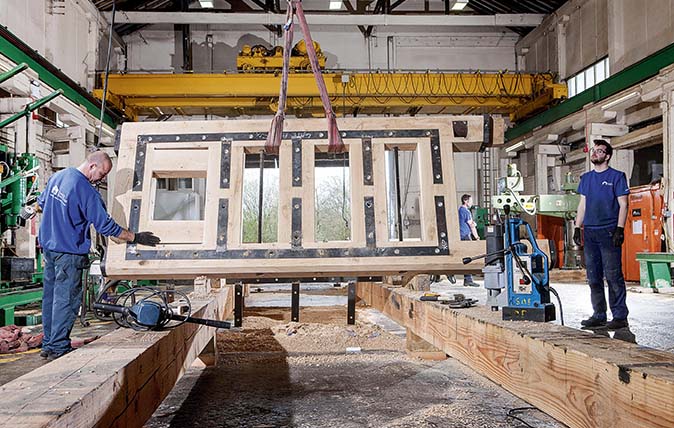

With more than 1,500 locks, some with five lock gates each that need replacing every 25 to 30 years, maintaining them can be ‘a bit like painting the Forth Bridge’, admits Steve Brunt, a workshop supervisor for the Canal and River Trust, which is dedicated to protecting and maintaining more than 2,000 miles of waterways in England and Wales.
Mr Brunt manages one of two sites where lock gates are handmade for the trust, which employs 12 full-time carpenters – including two sets of fathers and sons – to produce about 180 gates a year. ‘I like to call them artisans,’ he declares proudly of the eight lock-gate carpenters he supervises at the Stanley Ferry workshop near Wakefield, West Yorkshire. ‘Their trade is carpentry and joinery, but their skills are specialised for the waterways and there’s nothing else like it in any other industry.’
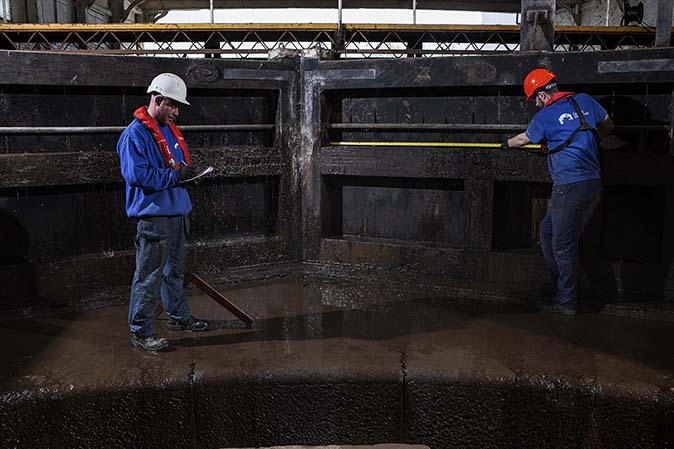
Each lock gate is handmade in the time-honoured fashion. When they start to wear out, the carpenters go on site to measure them up and a new one is then produced back at the workshop. Measurements are taken in imperial, the system that was in use when they were designed 200 years ago, then converted into metric to produce a CAD drawing.
‘There’s no standardisation within lock gates,’ points out Mr Brunt. ‘Each one is different according to the section of country it comes from and the engineer who designed it, so they’re all made to measure using traditional methods. We use British oak and build them to survive under water, control huge water pressures and endure the general wear and tear of boats passing through.’
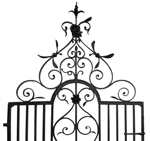
How to maintain wrought ironwork
Wrought ironwork dates back as far as the Romans and, properly maintained, is a wonderful way of marking your boundaries
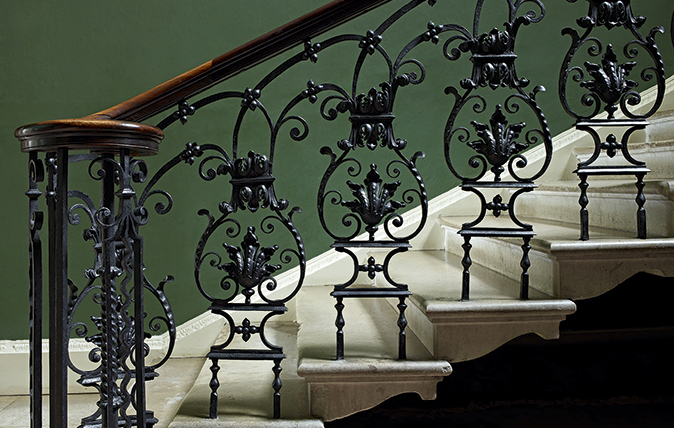
Curves and curlicues: 10 stunning staircases from the Country Life Archive
Iron can be wrought into the most delightful staircase balustrades. John Goodall chooses some favourites from Country Life’s outstanding archive.
Sign up for the Country Life Newsletter
Exquisite houses, the beauty of Nature, and how to get the most from your life, straight to your inbox.
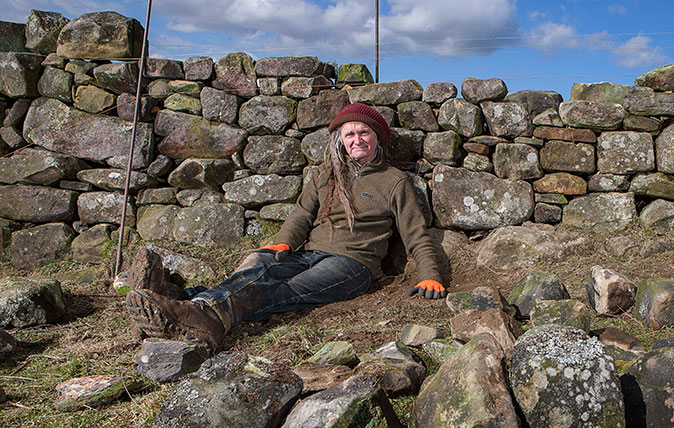
The dry stone wall builder: 'Every metre of wall contains a ton of stone. You really feel it after a hard week.'
This week's Living National Treasure is Anthony Gorman, a man who has spent his life building beautiful walls by hand
Country Life is unlike any other magazine: the only glossy weekly on the newsstand and the only magazine that has been guest-edited by HRH The King not once, but twice. It is a celebration of modern rural life and all its diverse joys and pleasures — that was first published in Queen Victoria's Diamond Jubilee year. Our eclectic mixture of witty and informative content — from the most up-to-date property news and commentary and a coveted glimpse inside some of the UK's best houses and gardens, to gardening, the arts and interior design, written by experts in their field — still cannot be found in print or online, anywhere else.
-
 From Vinted to Velázquez: The younger generations' appetite for antiques and Old Masters
From Vinted to Velázquez: The younger generations' appetite for antiques and Old MastersThe younger generations’ appetite for everything vintage bodes well for the future, says Huon Mallalieu, at a time when an extraordinary Old Masters collection is about to go under the hammer.
By Huon Mallalieu
-
 In all its glory: One of Britain’s most striking moth species could be making a comeback
In all its glory: One of Britain’s most striking moth species could be making a comebackThe Kentish glory moth has been absent from England and Wales for around 50 years.
By Jack Watkins
-
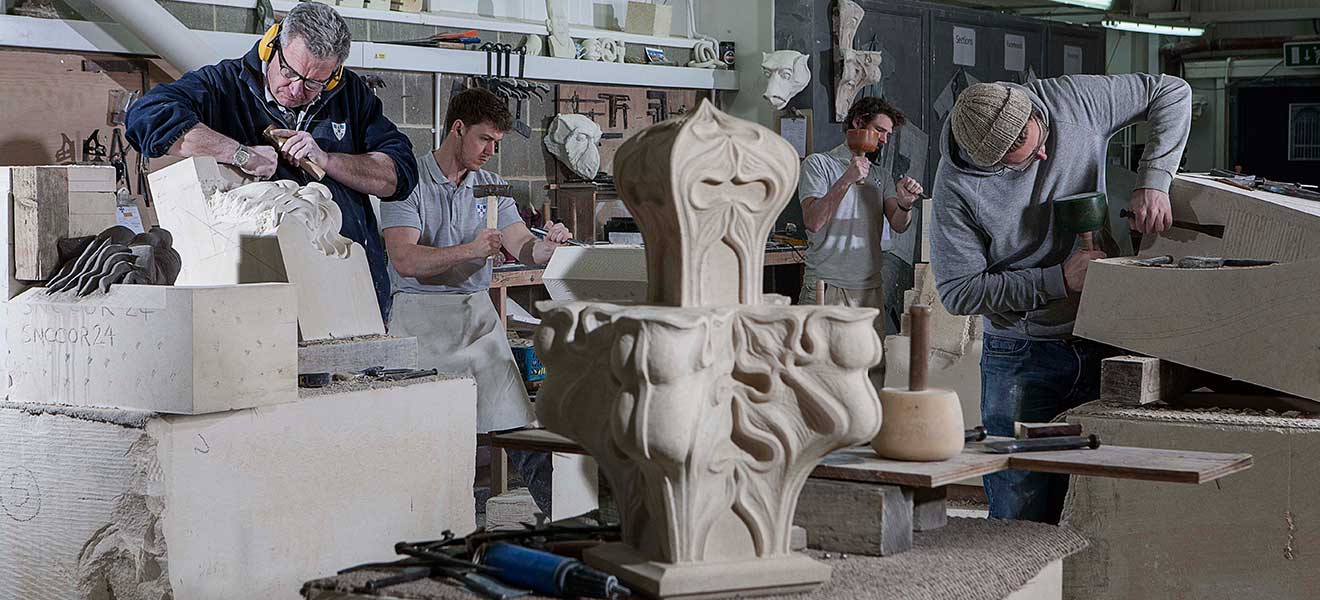 The Stonemason: 'Working on a cathedral is the pinnacle of architectural stone-masonry'
The Stonemason: 'Working on a cathedral is the pinnacle of architectural stone-masonry'A team of stonemasons is hard at work restoring Canterbury's magnificent cathedral, employing techniques that have been used since the dawn of civilisation. They spoke to Tessa Waugh.
By Country Life
-
 The traditional Brick-Maker who supplies Hampton Court: 'It’s like kneading dough'
The traditional Brick-Maker who supplies Hampton Court: 'It’s like kneading dough'There is only one company left in Britain still producing hand-made bricks – and their customers include the likes of Hampton Court. Tessa Waugh spoke to the gentlemen of H. G. Matthews.
By Country Life